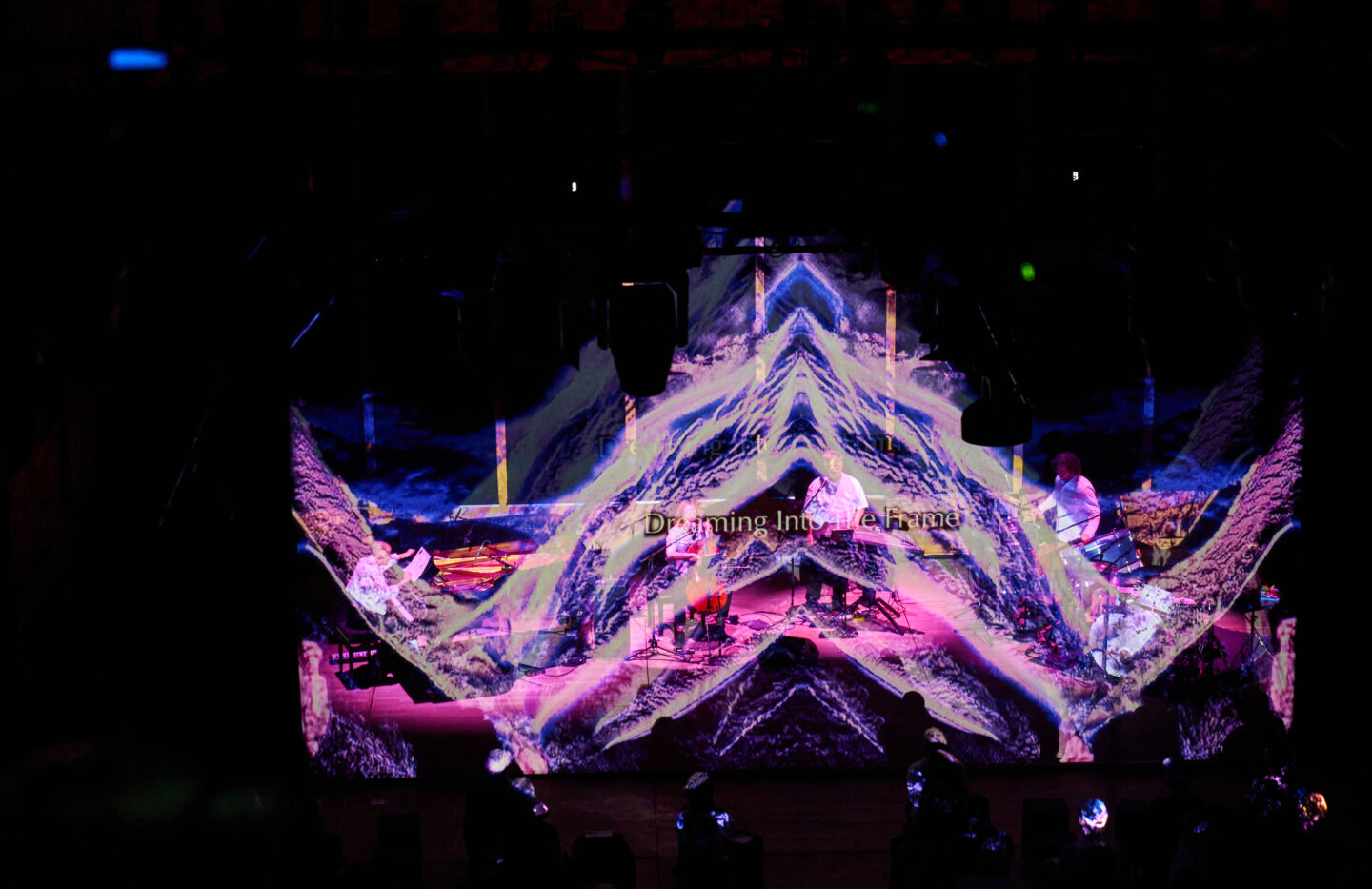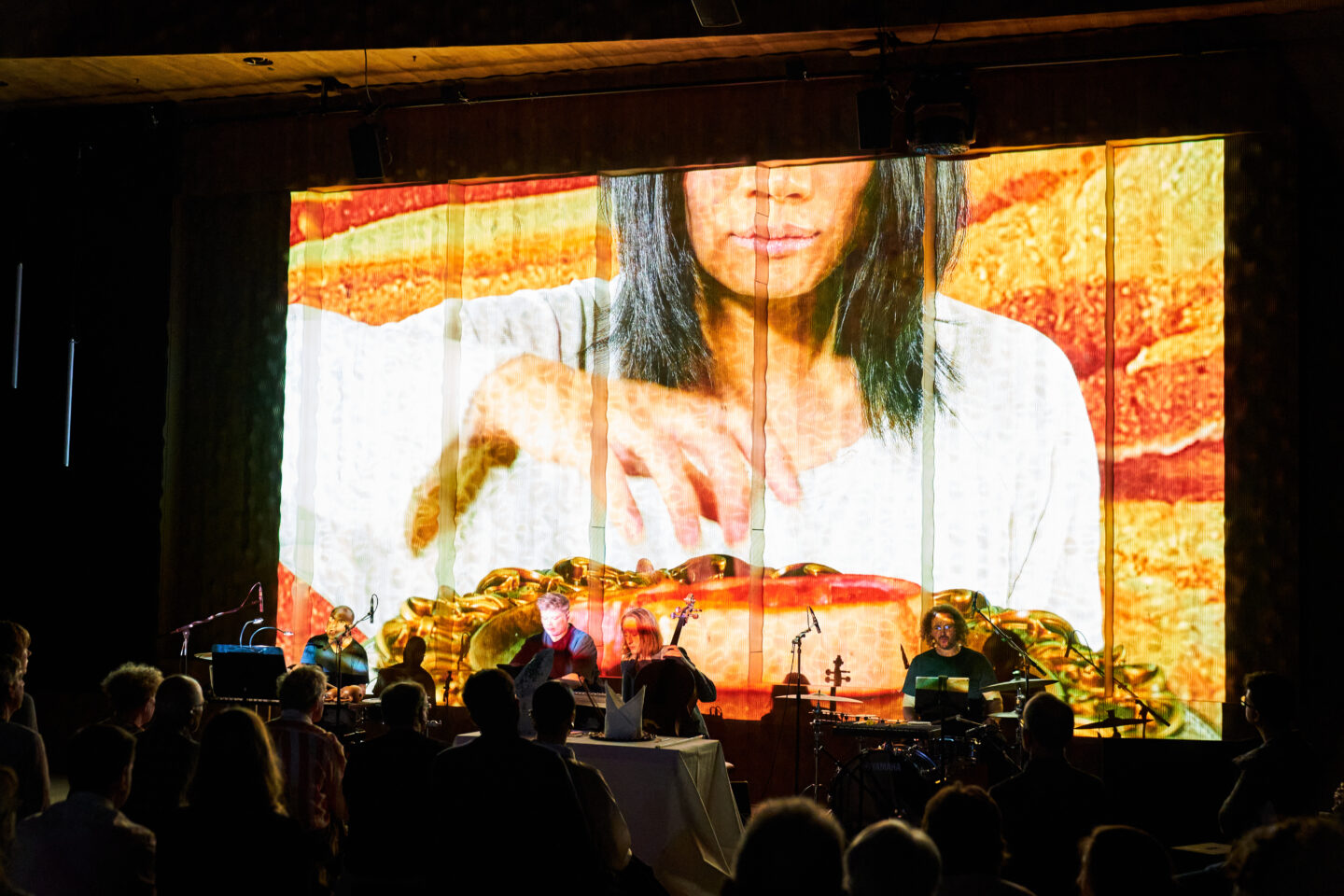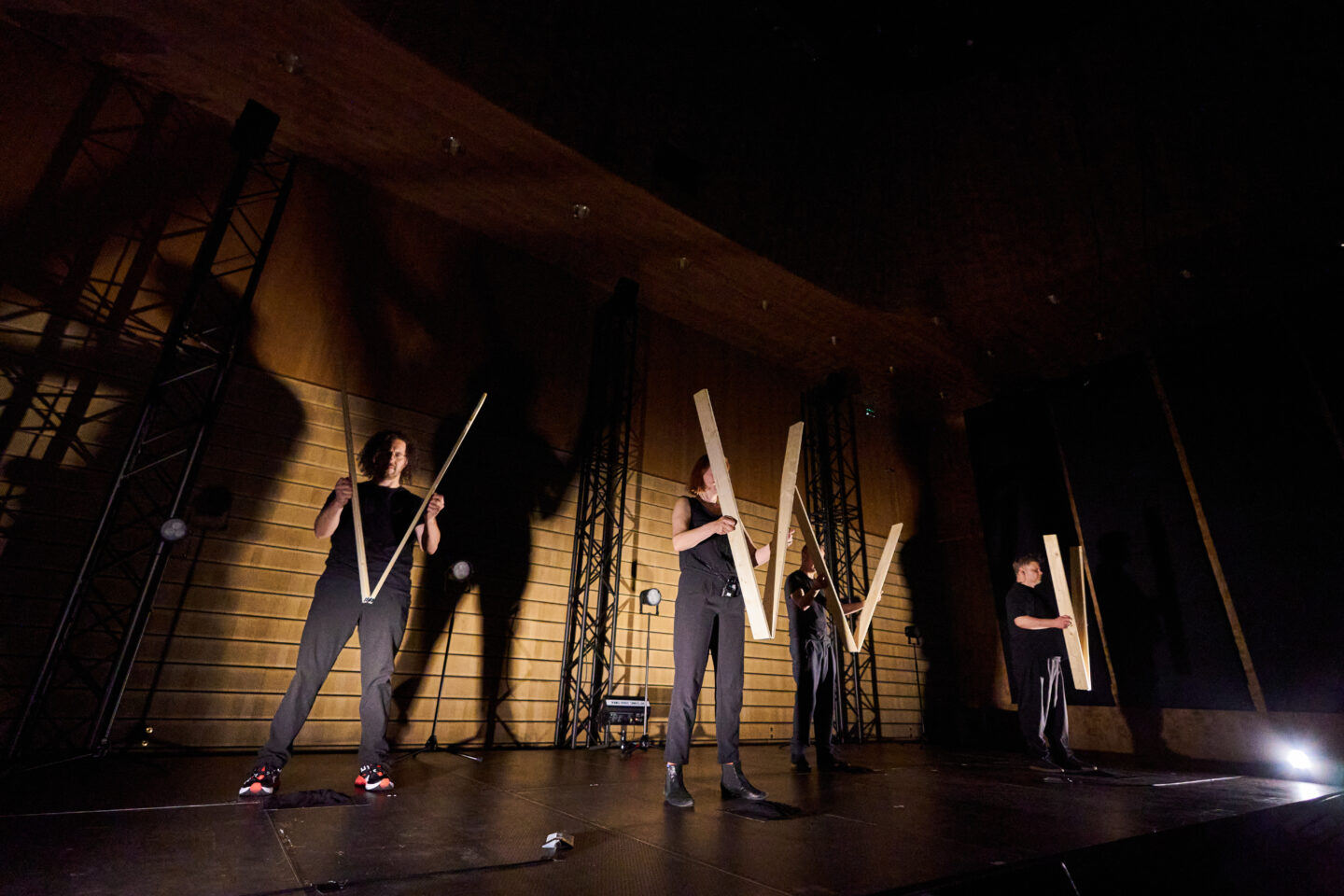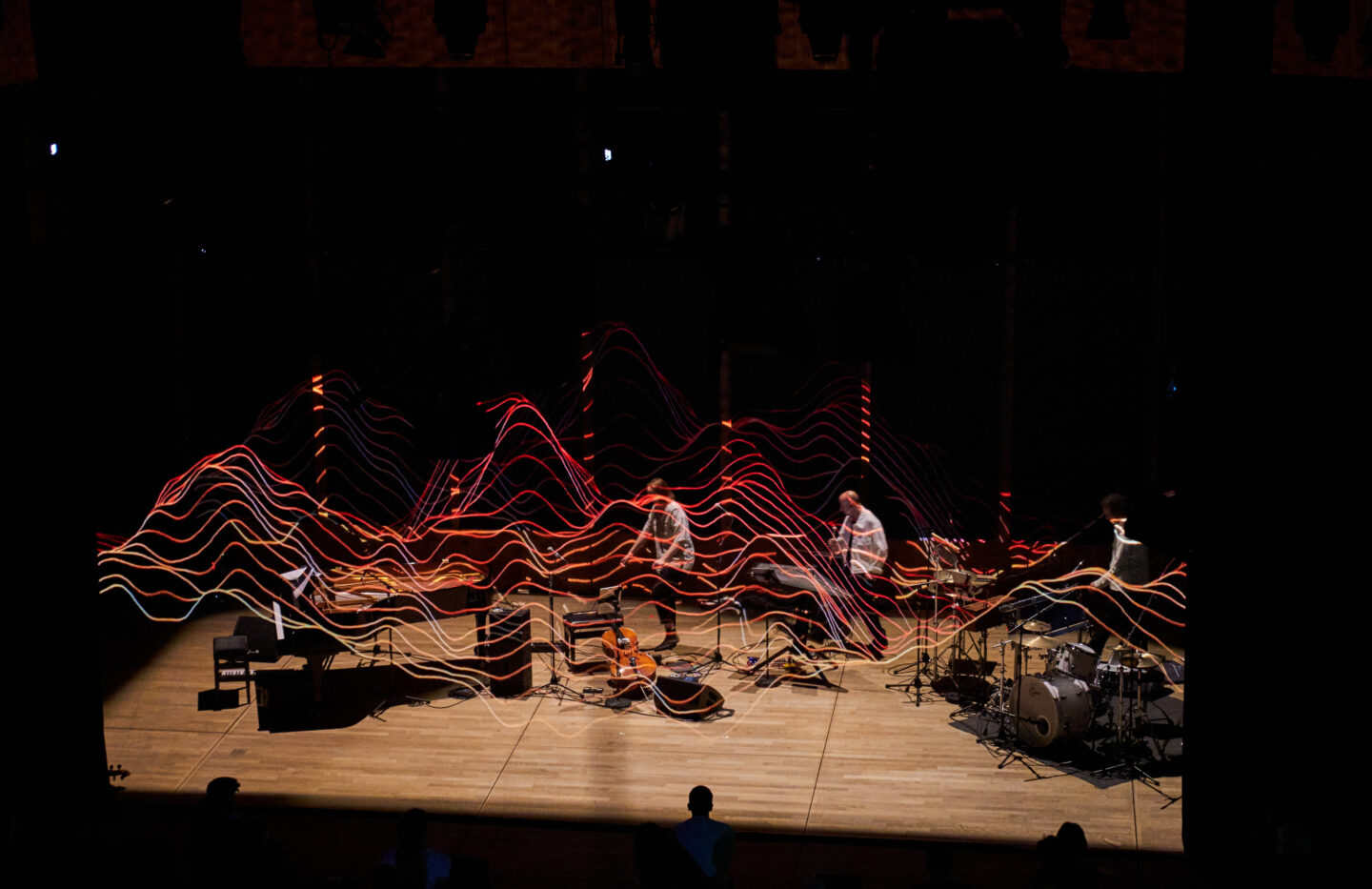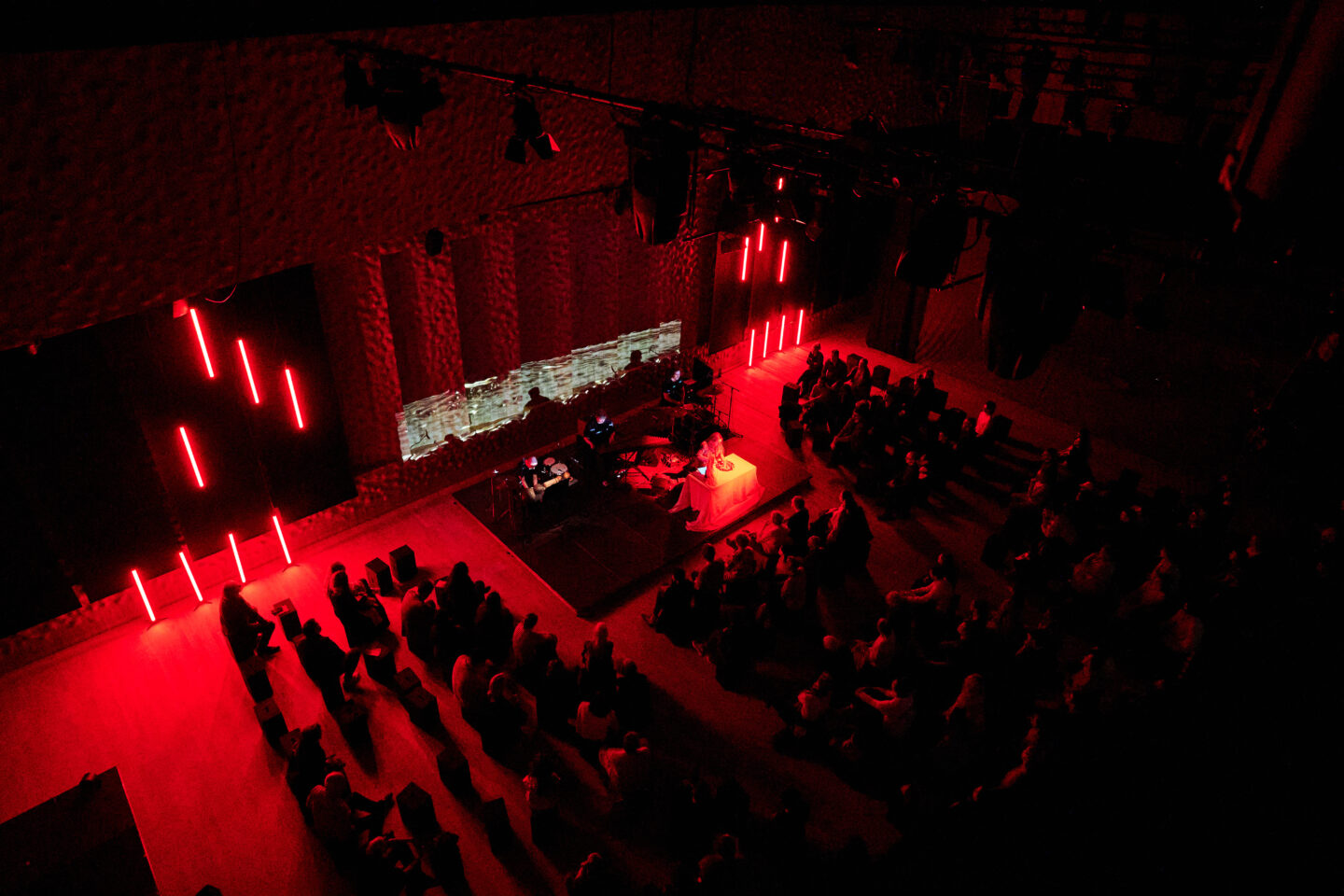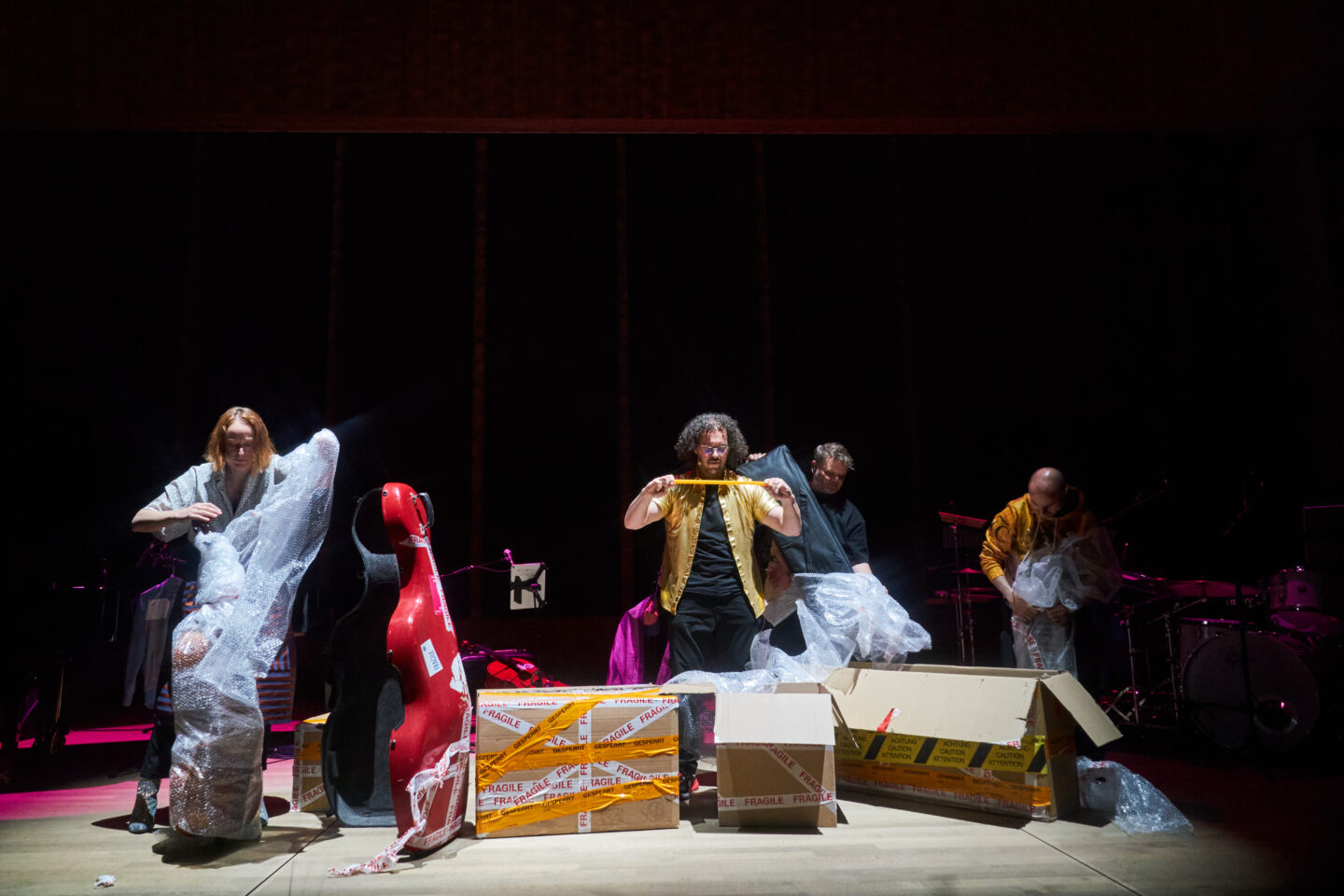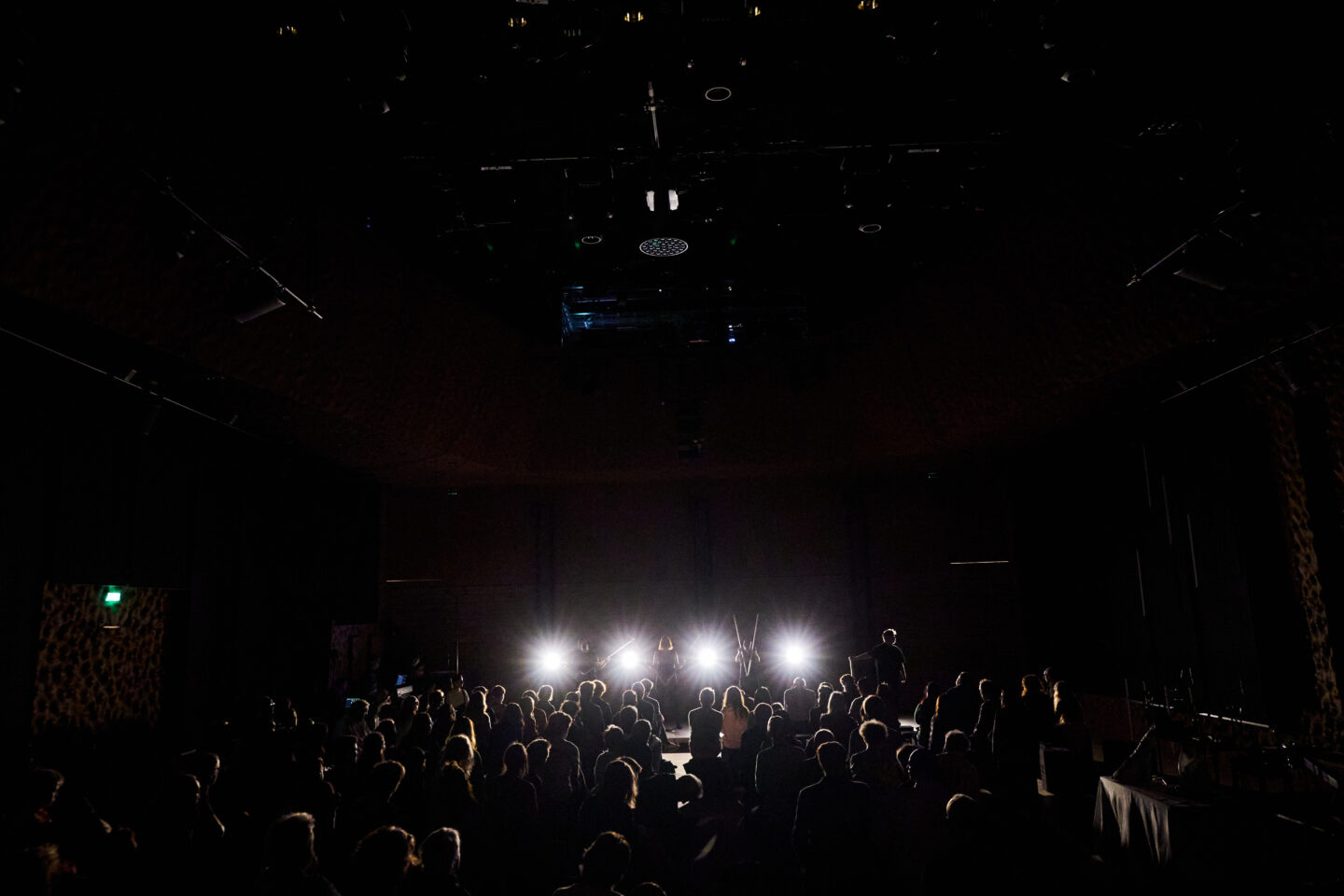FUTURE RECOGNITION (2025)
Premiere: May 2025 at the Elbphilharmonie Hamburg International Music Festival
Next Performance: April 2026 CDNM Badajoz

FUTURE RECOGNITION is a dynamic and evolving multimedia concert project by the Decoder Ensemble. This format engages with the visions of the future held by a new generation of artists and examines the profound impact of artificial intelligence in shaping our world. Through analysis, self-observation, and speculation, participating artists explore topics such as the fusion of nature and technology, the struggle for authenticity within vast AI data ecosystems, and the search for identity, beauty, and corporeality in an increasingly digital society.
New systems are emerging rapidly. Yet instead of succumbing to post-humanist pessimism, the project highlights the enormous potential for diversity and the expansion of physical and cognitive abilities. These possibilities are placed at the heart of artistic reflection—alongside justified critique and skepticism.
At the core of the project lies the perspective of young artists at the beginning of their careers, a generation for whom artificial intelligence is already an everyday tool. Their concepts create space for personal, creative engagement with current and future issues such as AI—through music and media.
Premiere (first iteration):
The premiere of Future Recognition took place on May 18, 2023, in the Small Hall of the Elbphilharmonie Hamburg. It featured new multimedia compositions by Michael Brailey, Shasha Chen, and Monika Dalach Sayers, commissioned by the Decoder Ensemble with support from the Ernst von Siemens Music Foundation and the Hamburgische Kulturstiftung. The concert was part of the Hamburg International Music Festival 2025, whose theme was “Future.”
Since 2017, the Decoder Ensemble has presented up to three concerts annually in the Elbphilharmonie and is regarded as its most experimental regular guest.
A special feature of the new works was the use of a 3D sound system installed by the Ligeti Zentrum in the Elbphilharmonie’s Small Hall. Thanks to the collaboration with the Ligeti Zentrum, the composers were able to engage deeply with 3D audio technologies during their creative processes.
Aesthetic inspiration for the project includes Alexander Schubert’s composition Holo_Acid.MOV (CRYPT-File). The texts, sounds, and videos in this multimedia piece are entirely AI-generated, continually transforming the physical presence of the performers based on pre-produced visual material. The characters dissolve into continuous glitches, evoking a visionary realm in which traditional gender binaries appear to blur. Composed and produced in 2020, the work premiered at the Decoder Ensemble’s 10th anniversary concert in the Elbphilharmonie in 2021.
A newly updated version—featuring a revised video generated with the latest AI video technology—is now part of the Future Recognition program. The stark difference between the original and the current version vividly illustrates the exponential pace of AI development. In just a few years, production techniques have become significantly more advanced and accessible, raising pressing questions for artists: What does the rapidly shortening half-life of technology mean for artistic creation? Are we being overtaken by our own ideas?
Further Development (future iterations):
A central element of Future Recognition is its continual evolution in step with technological developments, as well as its representation of an ever-expanding network of young musicians and artists engaging with future-oriented concepts. With each new iteration, Decoder—together with festivals and concert presenters—aims to commission at least one new work.
A future iteration is currently being planned in collaboration with the Montreal-based organizations Le Vivier and No Hay Banda and will include premieres by Quebecois composers Myriam Bleau and Philippe Macnab-Séguin. Other iterations are scheduled at CDNM Badajoz in 2026 and the Ultraschall Festival in 2027.
Goals and Sustainability Aspects:
Future Recognition is a concert format that offers relevant, aesthetically subjective perspectives to the broader discourse on artificial intelligence. It raises questions about how adaptable our bodies, minds, skills, and inner attitudes are in the face of AI’s dominance—and to what extent the project itself must remain flexible and responsive.
As an ensemble, Decoder places high value on sustainability, shared resources, reusability, and environmentally conscious transport when planning and executing tours. These concerns are increasingly influencing artistic decisions as well.
Participants in Future Recognition are encouraged to explore tangible solutions in these areas. Commissioned compositions are designed for a flexible ensemble of 4–5 musicians, allowing them to be performed not only by Decoder in various formations but also by other ensembles, thanks to open scores or open-source materials.
In addition to elaborate 3D sound versions, stereo mixes are also produced to ensure the works can be presented at venues with limited technical infrastructure. The stage and visual concept is designed to be realisable in a wide range of performance contexts—either using existing stage technology or with transportable elements. Equipment and setup are optimised for mobility, with the aim that productions requiring less theatrical staging can be installed on-site within a single day.
